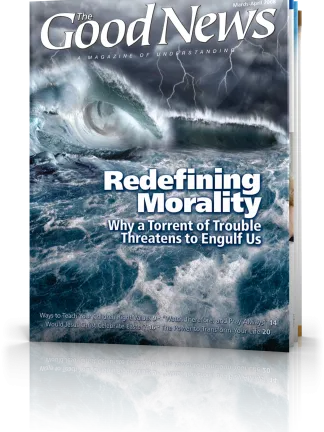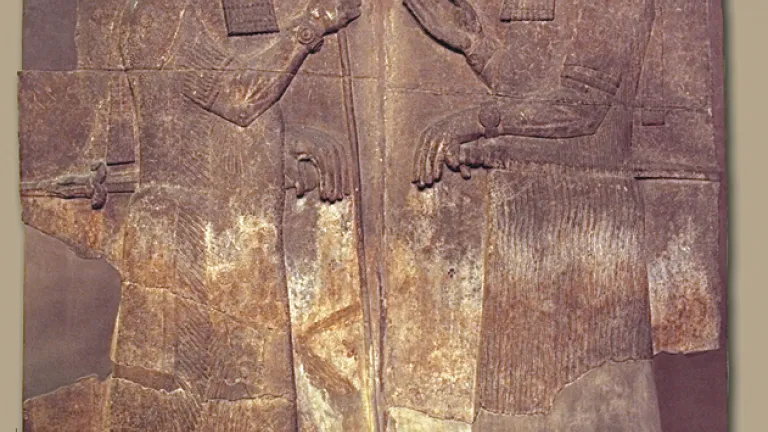God, Science and the Bible: Tomb of biblical King Cyrus may be lost forever
The sites of Persepolis, ancient capital of the Persian Empire, and Pasargad, location of the tomb of Cyrus, are soon to be submerged behind a new dam.
The sixth-century-B.C. Persian emperor Cyrus II, known to history as Cyrus the Great, is one of the most intriguing figures mentioned in the Bible. Recognized as a remarkably enlightened ruler for his era, he also played a key role in the fulfillment of a major Bible prophecy.
His story begins about a century before his birth when God inspired the prophet Isaiah to write: "Thus says the Lord . . . , who says of Cyrus, 'He is My shepherd, and he shall perform all My pleasure, saying to Jerusalem, "You shall be built," and to the temple, "Your foundation shall be laid."'
"Thus says the Lord to His anointed, to Cyrus, whose right hand I have held—to subdue nations before him and loose the armor of kings, to open before him the double doors, so that the gates will not be shut . . . I will give you the treasures of darkness and hidden riches of secret places, that you may know that I, the Lord, who call you by your name, am the God of Israel" (Isaiah 44:24, 28; 45:1-3, emphasis added).
The kingdom of Judah fell to Babylonian invaders about a century later, in 586 B.C. Jerusalem was razed to the ground; its walls and its magnificent temple, constructed by King Solomon, were utterly demolished. Most of the citizens of Jerusalem and Judah were taken captive to Babylon. Yet God did not forget His promise to eventually bring His people back to Jerusalem (Jeremiah 29:10-14).
Ironically, just about the time Jerusalem fell to the Babylonians, Cyrus was born to parents who were members of the royal families of the Medes and Persians. In 558 B.C. he became a Persian king, and by 548 he ruled all of Persia and Media.
In 539 B.C. Cyrus conquered Babylon. In doing so, he fulfilled Isaiah's prophecy that God would "open before him the double doors, so that the gates will not be shut." This was a remarkably accurate reference to the way Cyrus was able to overthrow the seemingly impregnable city of Babylon.
The Euphrates River flowed into Babylon through massive gates. Cyrus had his troops divert the river by removing ancient dikes that kept it in its course (referred to in Isaiah 44:27). He also managed to get a spy into the city, who had the inner gates along the river unlocked. Then, under cover of darkness, the king's forces waded into the city under the gates though the now-drained riverbed. Before sunrise, the great city of Babylon was conquered—and all according to prophecy.
Cyrus incorporated Babylon into his growing empire. In a time when conquerors were routinely merciless with their captives, Cyrus, in contrast, was known as a benevolent ruler who offered considerable freedom to the peoples previously conquered by the Babylonians.
Ezra 1 records the decree issued by Cyrus allowing the Jews to return to Jerusalem to rebuild their temple. This set the stage for the rebuilding of Jerusalem and the temple foretold by Isaiah about a century and a half earlier, long before they had even been attacked and destroyed. The entire story is described in the biblical books of Ezra and Nehemiah.
Sadly, the foresight and tolerance shown by Cyrus hasn't extended to the successors of his kingdom, the rulers of modern-day Iran. Reports out of Iran have accused the ruling religious authorities of embarking on a campaign to sever the Iranian people from their pre-Islamic past, similar to the campaign waged by the Taliban in neighboring Afghanistan.
The sites of Persepolis, ancient capital of the Persian Empire, and Pasargad, location of the tomb of Cyrus, are soon to be submerged behind a new dam. Whether or not this is a deliberate attempt to eradicate evidence of the past, it will certainly serve that end—and the ruling religious authorities seem all too content to stand by as these priceless sites disappear forever.
Although little is left of the city of Pasargad, Cyrus' tomb is largely intact and has been partially restored in previous years. A group of Iranian scholars has founded the Pasargad Heritage Foundation to draw attention to the issue and seek United Nations protection for the site.





